Our Ancestors’ Wildest Dreams
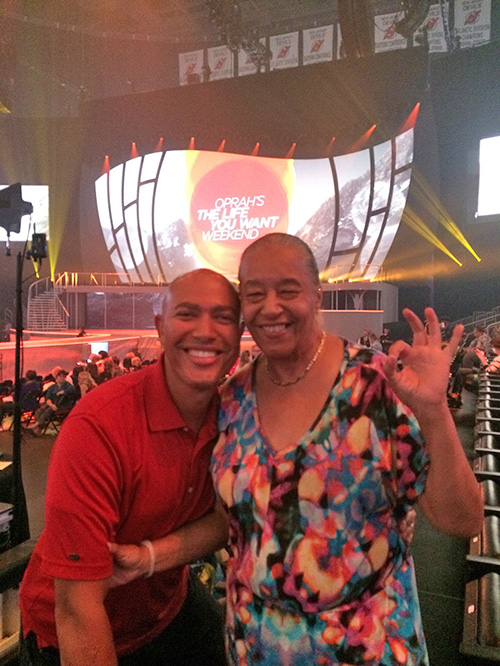
Here’s a letter from my heart to someone who helped inspire what’s at the heart of my writing and teaching, and what’s at the heart of books I hold close.
Dear Ma,
“I am my ancestors’ wildest dreams.” I saw a t‑shirt saying that and thought of you. I write this around your birthday so maybe what I say here is a gift to you. You had wild dreams for me. One you dreamt for yourself. You dreamt of publishing your writing, but life held you back. I’m living that dream for us. You also dreamt I’d befriend people who make the world better. I think my Kid Lit creator-friends are ones you might’ve befriended if life played out differently. I’m living that dream for us too.
My Kid Lit creator-friends write humanizing, wholesome books all kids need, but especially kids where we’re from because us Blacks and Puerto Ricans were often criminalized. Growing up in Red Hook projects was tough for us. I still remember LIFE magazine calling it “One of the Ten Toughest Neighborhoods in the U.S.A.” Not because it has always been a book desert. Not because in schools diverse books were scarce and in them stereotypes ruled. Speaking of stereotypes, how’d LIFE magazine run nine pages of photos stereotyping our neighborhood’s widespread crime, the insanely high dropout rates in school, the unemployment, and … ??? I can hear you now saying, “Talk about something else.” I now see you used to nudge me to switch the topic so I could instead spotlight the light and what’s right. I do that in my writing. I now realize you didn’t want me focusing on problems but, instead, wanted me to add what’s missing, humanity. I also do that in my writing. It’s your fault I’m the author I am, and I’m grateful. You used to write in your spiral notebooks that you read to me — spotlighting the light, bringing up what’s missing, and showing me your humanity. Your written reflections on your life outside of the projects revealed worlds outside of ours to me. Yours was the only projects’ apartment I saw with a library. You transformed our home into my literary lighthouse in a storm. Ma, you were my beacon.
You wrote, read to me daily, and raised four kids. It makes me hear Tupac’s Rap-lyric in my head, “A poor single mother on welfare. Tell me how you did it?” You were poor, single, a mom, and on welfare and you were also the neighborhood’s mom, and they knew you were my biggest fan. I run into people now who say, “Since you could walk, your mom would tell everyone you’d be a published author.” Ma, you saw it coming. You were an educator at heart, too and that also rubbed off on me because I am nearing thirty years of teaching.
Connecting to Stories
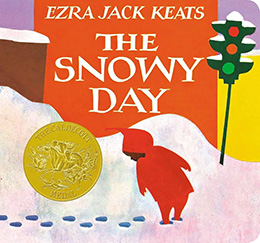
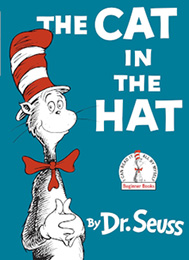
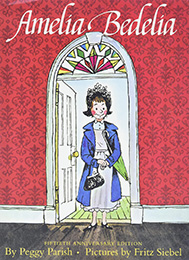
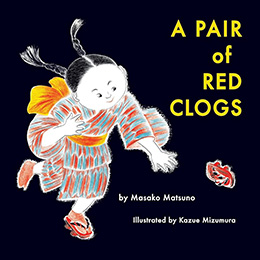
It was in third grade when you helped me connect to the types of stories I hold dear. In third grade, I felt books didn’t love me or anyone from our community, so I stopped loving books back. My failing schools whitewashed required readings, and they dehumanized us. It was like being told classical music is the best. So I unplugged from school and I almost repeated the third grade three times for it. I was almost killed as a writer and each year I see it done to kids where I teach and elsewhere. Fortunately, in our lighthouse apartment, you plugged me into The Snowy Day by Ezra Jack Keats. Peter and his mom weren’t stereotypes — they were us. This book didn’t criminalize Red Hook projects’ folks and other Black and Brown communities. You EKG shocked “reader and writer me” back to life. Then you introduced me to other short narratives in your library — The Cat in the Hat and other rhythmic, poetic, playful tales. I never asked you — did you keep Amelia Bedelia books because she’s a woman like you who marched to her own drum? But, Ma, I most loved your few picture books with people of color as human. When I held your Pair of Red Clogs by Masako Matsuno and illustrated by Kazue Mizumura, I felt I was holding so much more. I think that book and The Snowy Day is when I started drawing, humanizing reflective art like that. Thanks for making a deal with me at the time — you’d buy comic books if I read. Who knew I’d get so hooked? Right after came shows of Spider-Man and his Amazing Friends, X‑Men, and Super Friends plus 1980s movies of Star Wars, Rocky, Karate Kid, and more Sci-Fi and fantasy shows and films. Soon, I drew more daily, superheroes.
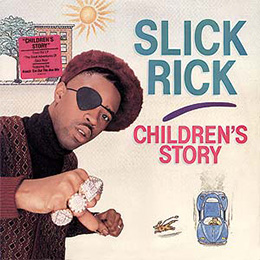 When I stopped drawing as a tween, you probably wondered where your little artist went. You seemed relieved when I turned into a teen and transformed into another artist, one who uses words to snapshot life. I know you didn’t like every rapper and what they rapped about but you liked the legendary rapper Biz Markie because he dated your daughter — my sister — and Biz made her happy. Rap grew on you even more when a breakdancer cousin was in one of the first Rap movies. The other family connections to Rap softened you up, especially when you realized my favorite rappers did what The Snowy Day did — humanized us and pondered innocence, wondering, and morality. When Slick Rick’s Children’s Story released, it was the multimedia Old School Rap picture book that teen me needed.
When I stopped drawing as a tween, you probably wondered where your little artist went. You seemed relieved when I turned into a teen and transformed into another artist, one who uses words to snapshot life. I know you didn’t like every rapper and what they rapped about but you liked the legendary rapper Biz Markie because he dated your daughter — my sister — and Biz made her happy. Rap grew on you even more when a breakdancer cousin was in one of the first Rap movies. The other family connections to Rap softened you up, especially when you realized my favorite rappers did what The Snowy Day did — humanized us and pondered innocence, wondering, and morality. When Slick Rick’s Children’s Story released, it was the multimedia Old School Rap picture book that teen me needed.
In High School and College
When I attended Midwood High School and Vassar College, you regularly asked, “Are you writing?” My short answer? Yes. I mean, I did “write” — just not how you thought. In high school and college, I was kept out of a literary lane. Too many White teachers and White peers and mainly White-run campus publications rejected my writing voice. I was too different. My writing-voice is where we’re from. My writing-style is where we’re from. Plus, I showed our community’s humanness — I didn’t stereotype or villainize. It felt as if those rejecting me just wanted to stick to tradition and their stereotypes of us. But my positions in student-government and affinity groups that required me to speak at meetings weekly continually honed my writing voice. Speech-writing mirrored the short narratives that you helped me connect to that I hold dear. I tried to make mine short bursts — quick poetic punches of power — mirroring your apartment read-alouds. I’d read anything that did the same. It was practice of cutting all excess and keeping unskippable parts. You’d be proud to know I kept secret notebooks as you did.
As I was about to graduate Vassar, I felt compelled to comment on what many fellow Black and Brown students noticed: a dehumanization of Black and Brown male students; so, I submitted a piece about that to The Vassar Spectator and “Walking the Talk” got published. I’ll never forget a Black classmate and friend read it and complimented me, “It’s like Nas wrote this.” Her comparison ignited me because Nas was a rapper who did to New School Rap what Slick Rick did to Old School. Years later, Nas proved that with “I Can,” a song akin to Slick Rick’s “Children’s Story.” Both were heralded as multimedia picture books, humanizing depictions of young Black and Brown with lessons of morality. In my heart, I had a wild dream — maybe one day I’d publish a novel like that and if I were lucky a picture book too.
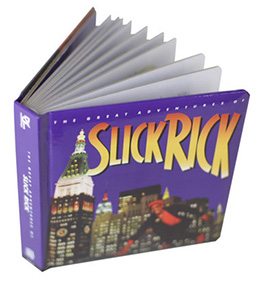
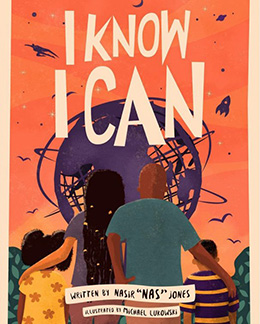
Teaching
When I told you I’d teach in the middle school from which I graduated, you said, “Full circle.” The nearly thirty years I’ve taught has been both research and a reminder. Lots of Red Hook kids still feel books don’t love them and reading is synonymous with work. That’s how it is in every school across the nation I’ve visited as an author. And so much still makes kids’ lives heavy. You used to tell me, “Be the change you want to see.” I don’t want to further weigh kids down. You jokingly quizzed me once, “What are the Rs?” I recited the Old School Rs, “Reading, ‘Riting, ‘Rithmetic.” Ma, I made my own Rs, for stories and for teaching. I strive to be Riveting, Relatable, Right-Sized, and a Rollercoaster. When my class or story ends, I want kids to demand the thrill ride again. And I hear it — “I wish your class was longer”; “I’ve read your book three times”; “Have you written more books?”
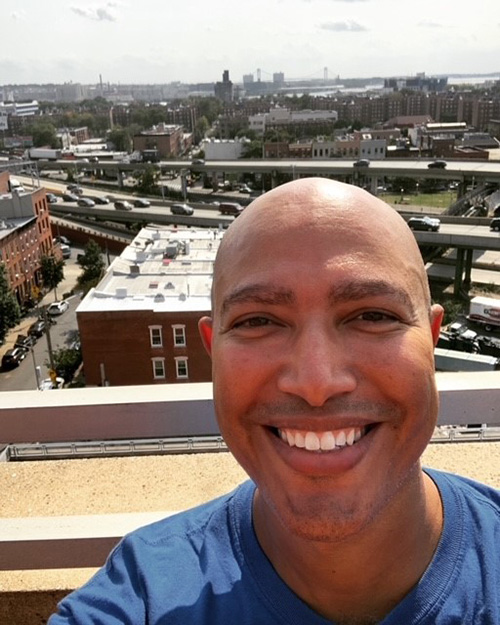
My Books
You loved all of my books for those reasons. Secret Saturdays is 195 pages; Tight is 177; third, What Lane? is 125; and fourth, Hands is 135. You liked that my chapters are short, even when a chapter is just a paragraph. Since my first book, you’ve asked, “When’re they turning them into Spanish?” We wanted both sides of our Black and Latinx heritage proud. A month ago, Hands released in Spanish. Tight’s Spanish edition published this month.
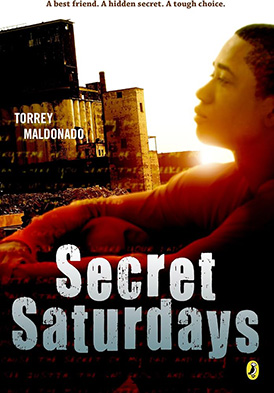
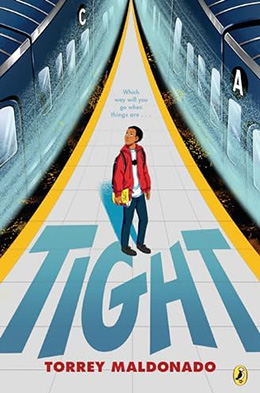
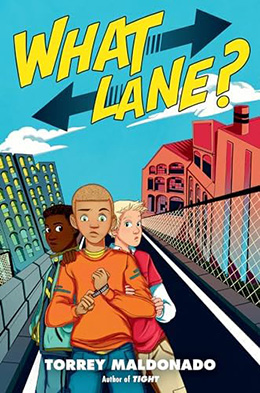
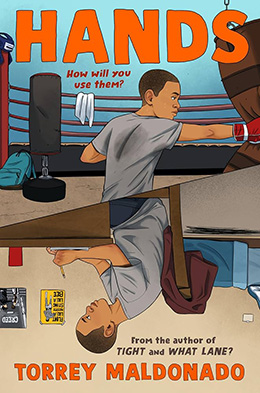
But it’s the readers of my books who said, “I’m going to read your book to my six-year-old sibling” that returned me to dream of writing picture books. Guess what? My first picture book is Just Right and publishes Spring of 2026. Uncle, then Little Artist, follow. Our writing-dreams are reality.
People Who Make the World Better
I look back at another dream you dreamt for me: you dreamt I’d befriend people who make the world better. I don’t think it’s an accident who my Kid Lit creator-friends are. Their writing does my New School “Rs” with vibrant, fun stories with heartfelt messages that capture a universality and timeless essence of all kids while revolving the story around Black and Brown children.
I feel aligned with them because they also use their art to make the unseen seen, the unheard heard, and the neglected centered. They give young people what is missing on the shelves. Floyd Cooper has illustrated and written about one-hundred picture books and one book he illustrated had so much of The Snowy Day effect on me that there’s a YouTube video of me reading his Where’s Rodney? He and Sharon Langley were a dynamic duo and made A Ride to Remember.
Another friend is Kelly Starling Lyons and all her titles are must-haves on shelves yet a little secret you might enjoy is her Tiara’s Hat Parade which was a favorite of two of your great granddaughters.
Ma, I wish you could see Brown Baby Lullaby by Tameka Frayer Brown. I bet it would send you down Memory Lane, thinking the Mom and baby in it are us.
Remember meeting Jacqueline Woodson? When my daughter — your beloved granddaughter — was in the fourth grade, I read Each Kindness aloud to her class to help the teacher stop bullying. Oh, I also brought it to The Library of Congress and book-talked it where it’s now archived.
Speaking of that, my friend Meg Medina’s picture books Evelyn Del Rey is Moving Away and Mango, Abuela, and Me are amazing!
I bet if Traci Sorell’s At The Mountain’s Base, the work of Nikki Grimes, Gordon C. James, Eric Velasquez, Jerry Craft, Don Tate, Frank Morrison, Charles R. Smith, Jr., and Renée Watson were around when I was a boy and you knew of them, you’d stock our apartment library with them.
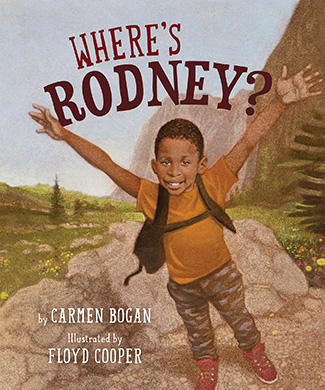
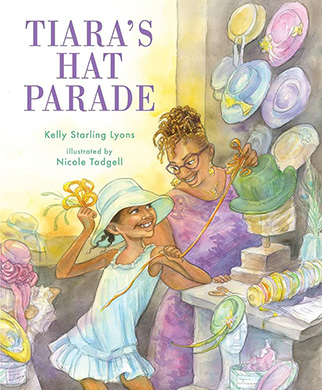
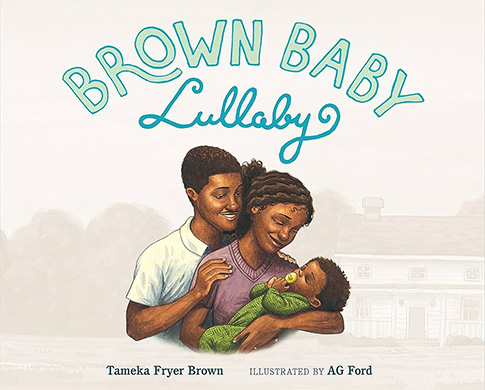
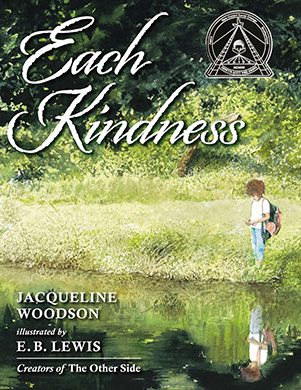
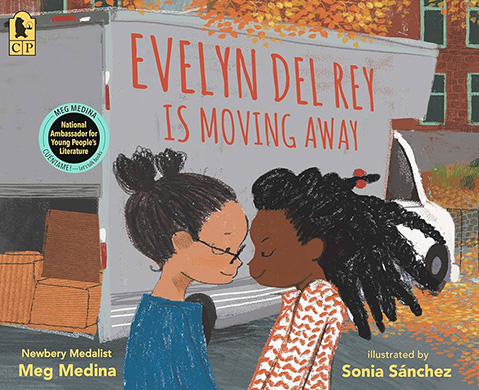
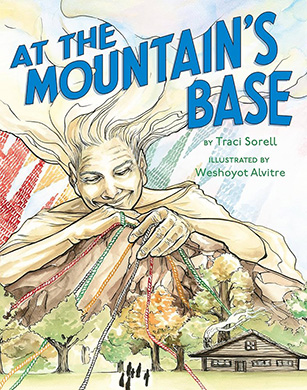
The Wild Dream We Dreamed
I know you’d hate for me to say boy me was on a track to drop out of school or worse, but you admitted it was true. You dreamt a wild dream for me and we did it. I dreamt something for me I never told you. I dreamt I’d write something read all over the world. It came true — this year Hands is a Global Read Aloud with schools in Switzerland, Italy, Vietnam, Hawaii, the U.S. and Canada, and more reading it. I also dreamt you’d read it and see its impact. It’s a wild dream come true and a feather in the cap of the dreamer who dreamt this wild dream for herself then dreamt it for me, you. Ma, about three years ago, why’d you tell me you could die happy knowing I was living your dream? Did you see your death coming? Because later that year you suddenly died. It’s taken a while for it to feel real, then for me to move to a place of feeling all the joy we shared.
Remember the fun we had when you’d ask me to repeat tongue twisters? We’d both laugh as we tried, “She sells seashells by the …” I remember once you told me, “Repeat after me, ‘Tis better to have loved and lost than never to have loved at all.’” Just recently I learned that’s from Tennyson. Get this, Ma. His poem is titled “Beautiful Boy (Darling Boy).” I was lucky to have your love because you always treated me like I was your beautiful, darling boy. I’m lucky you let me hold onto my voice, my vibe. I saw another saying — “Your vibe attracts your tribe.” Thanks for having the right vibe and helping me figure out what’s mine. It’s helped me find my tribe — other Kid Lit creator-friends whose writing is a lighthouse in the storm of kids’ lives, how your apartment was to me, guiding kids through their journeys to become their best selves. “I am my ancestors’ wildest dreams.” That t‑shirt’s saying made me think of you. I am, and you are too. And we’re helping kids be their ancestors’ wildest dreams.
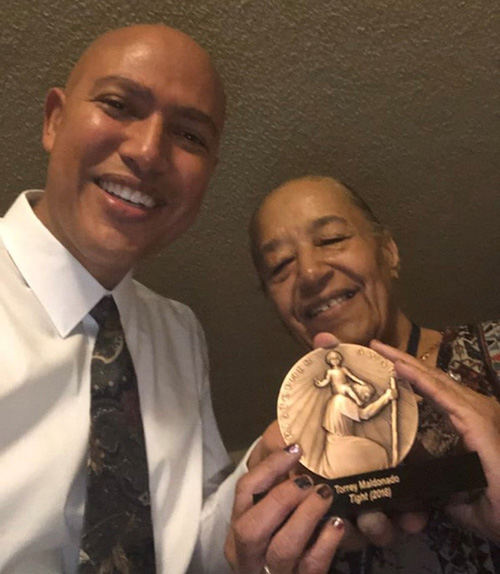

Wonderful insight into an outstanding author and his proud mom! I’m sorry for your great loss, Torrey, but glad you could share this with the Kid-Lit community.
I so enjoyed reading this testament and memoir of deep mom love and books braided together.